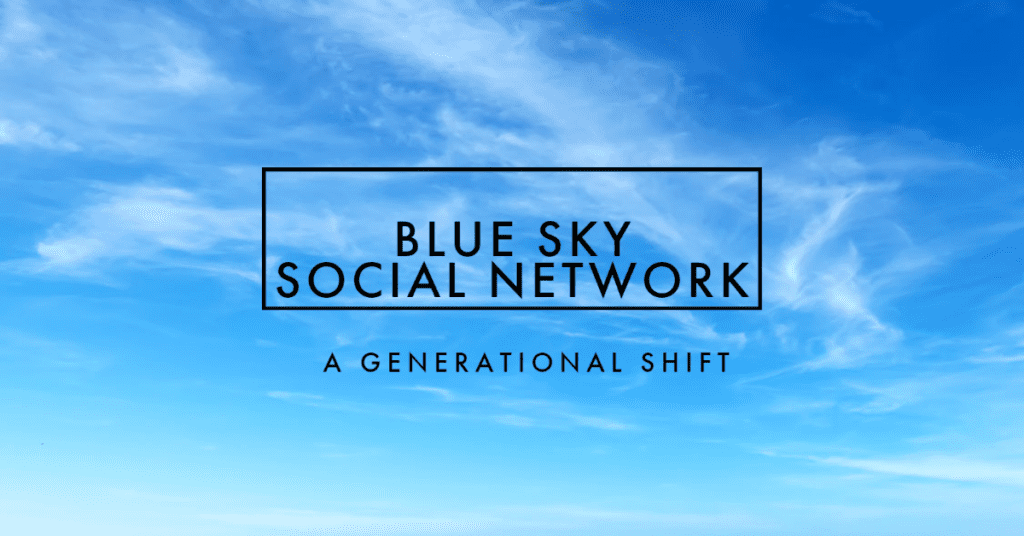What is Bluesky?

Bluesky is a “decentralized” social media platform backed by former Twitter CEO and founder Jack Dorsey. It’s led by CEO Jay Graber, who was chosen by pre-Musk Twitter at least in part thanks to her background as a crypto developer, according to CoinDesk(opens in a new tab).
It was meant to function a bit like Mastodon, another Twitter alternative, with its federated universe of individual servers that users can traverse.
But Bluesky is very new, and those separations between communities that ended up working against Mastodon — since many users found them confusing(opens in a new tab) — have basically not been built yet.
What we are left with is a barebones “microblogging” app extremely reminiscent of the early days of Twitter. It looks like old Twitter from the UI, and as of yesterday, down to the low-stakes fun postings. Short, funny posts reign supreme on the app right now.
On Bluesky, you can’t DM anyone. There’s no video functionality. Users can’t even upload a GIF.
Read our social new updates here
Currently, everything you post belongs to Bluesky.
Ashley Gjvik, a Twitter user, tweeted about Bluesky’s unsettlingly broad terms of service on Thursday, April 27. She shared a number of images of the terns on Twitter, along with a quote that read, “If you post any content to the Bluesky Web Services, you hereby grant Bluesky and its licensees a worldwide, perpetual, royalty-free, non-exclusive right and license to use, reproduce, publicly display, publicly perform, modify, sublicense, and distribute the content, on or in connection with the Bluesky Web Services.”
That simply means that we own everything you post.
According to her LinkedIn profile, Rose Wang, who works in Strategy and Operations at Bluesky, responded to Gjvik’s screenshots with an explanation of how the Bluesky team intended to interpret the terms: For in order that.
“That means, we will take screenshots of Bluesky, which will include your users’ content. That said, we have explicitly told our community that if we are using your content in a way you disapprove of, please email us… and we’ll do our best to honor your wishes. Bluesky was created so that users own their data, devs will never be locked out of the ecosystem, and creators can always own the relationship with their users… Thus, we are doing our best as [a] team to honor our ethos… Soon, our ToS will spell out use cases to mitigate confusion.”
That all sounds nice. But Terms of Service agreements amount to a binding contract, and tweets claiming a company is “doing [its] best” to use your content a certain way do not.
These terms are harsh, even compared to Facebook
Let’s take a look at Facebook’s terms of service, which are much more nuanced in their explanation of user rights. “You retain ownership of the intellectual property rights,” the terms page reads.
“Nothing in these Terms takes away the rights you have to your own content… However, to provide our services we need you to give us some legal permissions (known as a ‘license’) to use this content.”
The Facebook terms document then outlines what is covered by the license, and notes that it only applies “specifically when you share, post, or upload content that is covered by intellectual property rights on or in connection with our Products.”
The document also provides a helpful example: if you post a photo, you grant Facebook certain necessary permissions, allowing Facebook’s parent company Meta to duplicate it, store it, and share it with others in ways “consistent with your settings.” Reassuringly, it notes that the license you grant “will end when your content is deleted from our systems.”
Bluesky may just be protecting itself because it’s new
In comparison to Facebook’s terms, Bluesky’s read like a first draft put in place to satisfy a legal team, probably so the platform could start onboarding users and, for her part, the CEO has claimed this is essentially what happened.
You know what they say in tech: move fast, break things, and claim ownership of your users’ content!
Wang’s replies point to another sticky subject: copyright. “We must protect ourselves,” she wrote. Journalists, according to Wang, have been “taking screenshots of the app and putting it into their publications,” and the terms need to make it possible to “transfer rights to license content to them.”
In the case of moderation, Wang said, copyright once again comes into play. Bluesky must be able to legally transfer content to moderators “so that they can scan through content” and sift out objectionable material.
These terms might have downsides for Bluesky itself
But owning user content, and being able to transfer rights to that content, may mean BlueSky is not protected by the “safe harbor” provisions of the Digital Millennium Copyright Act (DMCA). Under the DMCA, safe harbor protection goes away if a company has the “right and ability to control” copyright-infringing content and can potentially profit off of it.
That means these terms leave Bluesky vulnerable to costly copyright infringement litigation, which would sap the fledgling app’s potential.
For all its promise, Bluesky is still very much a work in progress. And while it’s never fun to read the fine print, it’s worth taking a quick look before handing over your content to Bluesky.




















